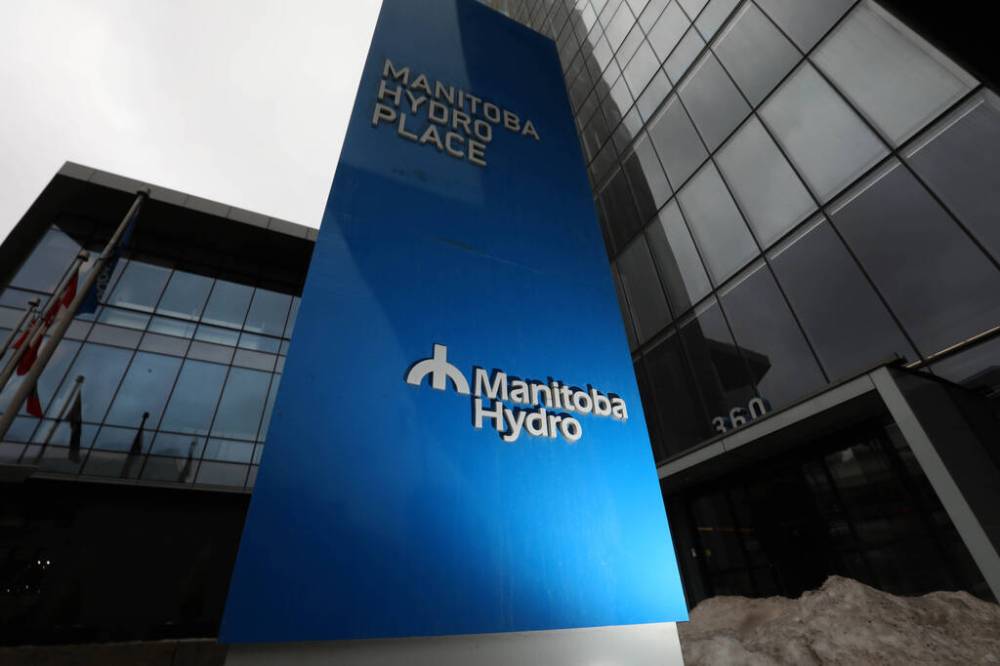Hydrogen production could be key to province’s energy future, Kinew says
Advertisement
Read this article for free:
or
Already have an account? Log in here »
To continue reading, please subscribe:
Monthly Digital Subscription
$0 for the first 4 weeks*
- Enjoy unlimited reading on winnipegfreepress.com
- Read the E-Edition, our digital replica newspaper
- Access News Break, our award-winning app
- Play interactive puzzles
*No charge for 4 weeks then price increases to the regular rate of $19.00 plus GST every four weeks. Offer available to new and qualified returning subscribers only. Cancel any time.
Monthly Digital Subscription
$4.75/week*
- Enjoy unlimited reading on winnipegfreepress.com
- Read the E-Edition, our digital replica newspaper
- Access News Break, our award-winning app
- Play interactive puzzles
*Billed as $19 plus GST every four weeks. Cancel any time.
To continue reading, please subscribe:
Add Free Press access to your Brandon Sun subscription for only an additional
$1 for the first 4 weeks*
*Your next subscription payment will increase by $1.00 and you will be charged $16.99 plus GST for four weeks. After four weeks, your payment will increase to $23.99 plus GST every four weeks.
Read unlimited articles for free today:
or
Already have an account? Log in here »
Hey there, time traveller!
This article was published 30/10/2023 (771 days ago), so information in it may no longer be current.
Flipping the switch on local hydrogen production will be a pivotal step towards a net-zero energy grid, Premier Wab Kinew said Monday, as the NDP government tries to get ahead of a future power-pinch.
“The days of (Manitoba) Hydro being this utility that’s exclusively focused on building massive dams are over,” Kinew told reporters during a scrum after receiving his COVID-19 and seasonal flu shots.
The premier was pressed on how he plans to achieve a net-zero energy grid by 2035, as spelled out in a mandate letter to Environment and Climate Change Minister Tracy Schmidt.

Manitoba must go all-in on energy-efficiency programs amid the projected dearth of generating capacity while being strategic about how and when it uses electricity to power hydrogen production, Manitoba Premier Wab Kinew said. (Ruth Bonneville / Winnipeg Free Press files)
“We should look at the genesis of a hydrogen industry in Manitoba, and, in particular, what can we do about generating hydrogen during off-peak times and then using it during peak hours,” Kinew said.
“That’s an area that Manitoba Hydro and the rest of the province should start to look at in a more serious way because that could be one significant step towards decarbonizing the rest of the grid.”
However, Kinew acknowledged the high demand on the power grid to produce hydrogen gas could create new challenges for the Crown corporation, which forecasts current surplus electrical capacity will meet the province’s needs only until the early 2030s, assuming population growth and energy-use trends continue.
Manitoba must go all-in on energy-efficiency programs amid the projected dearth of generating capacity while being strategic about how and when it uses electricity to power hydrogen production, Kinew said.
“The next opportunity to bring more capacity on to the grid is by energy-efficiency programs geared towards home and other customers. And so, that’s going to be the first place that we look,” he said. “We know that that could potentially bring a lot of power back onto the grid to meet a lot of transportation, decarbonization (and) industrial needs.”
Kinew said he wants to broaden the conversation around power to include a variety of potential sources. However, natural gas-fired power plants are not part of the plan, he said.
Schmidt and Finance Minister Adrien Sala (who is responsible for Manitoba Hydro) will be working with the utility “to put a finer point on these things to see what is achievable,” Kinew said.
The first consideration, however, is “always rates and keeping life affordable.”
“We’re proceeding very methodically in terms of the direction here on Hydro, and our mandate letter to the ministers is, I think, indication directionally where we want to head,” he said.
“The most important thing for Manitoba right now is to focus on how, as a province, we can reach net-zero. So looking towards using that as a source to help us meet our peak demand in Manitoba seems very reasonable.”– communications manager Bethany Daman for Manitoba’s Climate Action Team
The NDP government was applauded by Manitoba’s Climate Action Team for setting targets to achieve net-zero that are in line with Canada’s commitments in the 2015 Paris Agreement.
However, the coalition of environmental groups cautioned that future hydrogen production cannot be powered by natural gas, and that local energy demand needs to be met without fossil fuels before the province looks for customers beyond its borders.
“The most important thing for Manitoba right now is to focus on how, as a province, we can reach net-zero,” communications manager Bethany Daman said. “So looking towards using that as a source to help us meet our peak demand in Manitoba seems very reasonable.”
Daman called the NDP’s support for heat pumps and its emphasis on efficiency encouraging.
“There are a lot of challenges when talking about solutions because everyone has different ideas about exactly how we are going to get to net-zero, and the important thing to remember is that there are multiple different solutions that could actually get us to that point,” she said.
Deep energy retrofits and geothermal energy must also have a significant role in Manitoba’s energy future, she said.
“At this point it’s exciting to be able to look at what the next steps and solutions are,” Daman said. “We recognize that this is tough, it’s a hard transition, but it can get to the point where Manitobans’ lives are more affordable.”
danielle.dasilva@freepress.mb.ca

